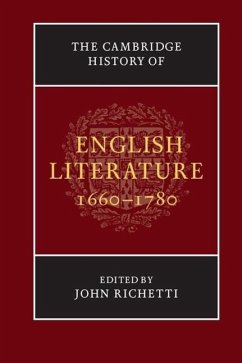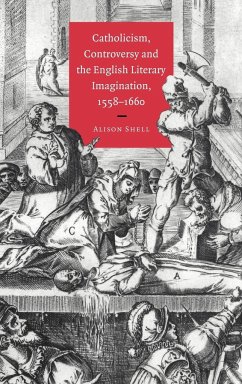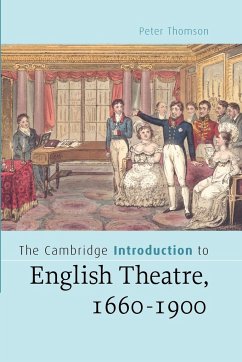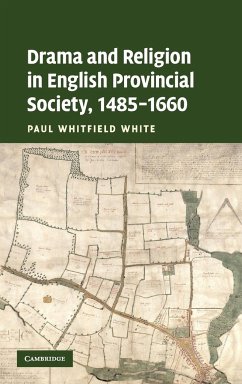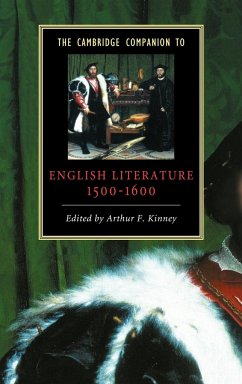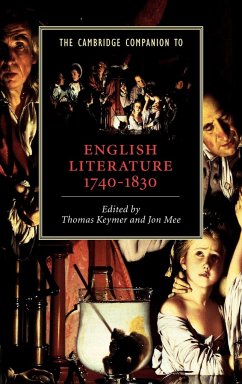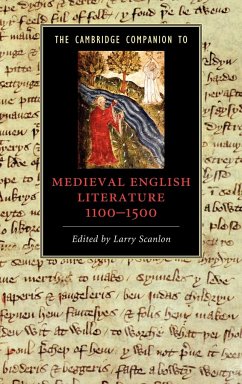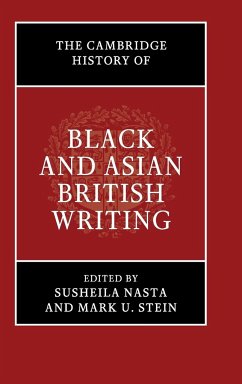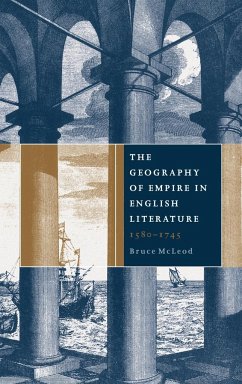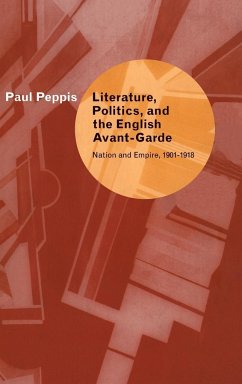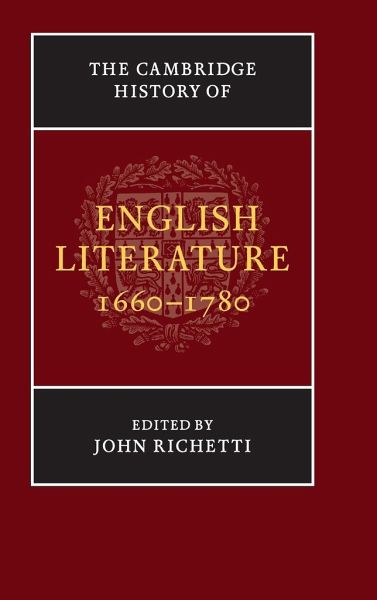
The Cambridge History of English Literature, 1660-1780
Versandkostenfrei!
Versandfertig in 1-2 Wochen
294,99 €
inkl. MwSt.

PAYBACK Punkte
147 °P sammeln!
The Cambridge History of English Literature, 1660-1780 offers readers discussions of the entire range of literary expression from the Restoration to the end of the eighteenth century. In essays by thirty distinguished scholars, recent historical perspectives and new critical approaches and methods are brought to bear on the classic authors and texts of the period. Forgotten or neglected authors and themes as well as new and emerging genres within the expanding marketplace for printed matter during the eighteenth century receive special attention and emphasis. The volume's guiding purpose is to...
The Cambridge History of English Literature, 1660-1780 offers readers discussions of the entire range of literary expression from the Restoration to the end of the eighteenth century. In essays by thirty distinguished scholars, recent historical perspectives and new critical approaches and methods are brought to bear on the classic authors and texts of the period. Forgotten or neglected authors and themes as well as new and emerging genres within the expanding marketplace for printed matter during the eighteenth century receive special attention and emphasis. The volume's guiding purpose is to examine the social and historical circumstances within which literary production and imaginative writing take place in the period and to evaluate the enduring verbal complexity and cultural insights they articulate so powerfully.





